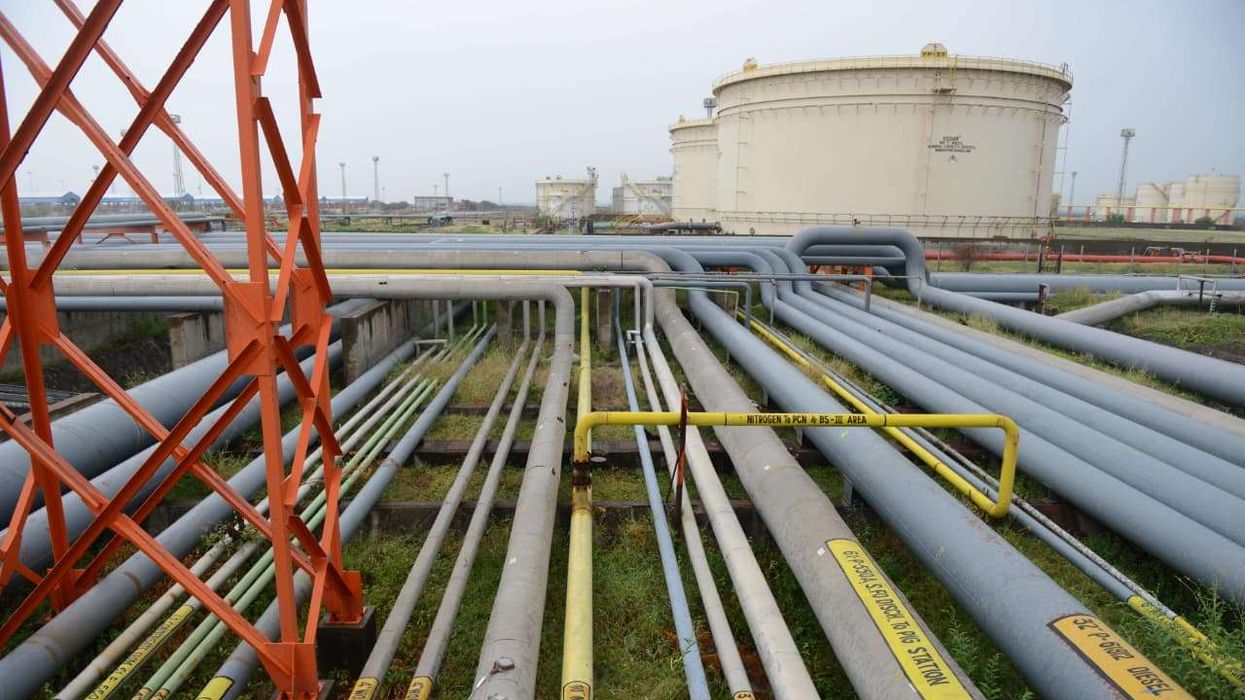The United States snapped sanctions back in place on Monday (5) to choke off Iran's crude oil and shipping industry, while temporarily allowing top customers such as China and India to keep buying crude from the Islamic Republic.
Having abandoned the 2015 Iran nuclear deal, US president Donald Trump is trying to cripple Iran's crude oil-dependent economy and force Tehran to quash not only its nuclear ambitions and its ballistic missile program but its support for militant proxies in Syria, Yemen, Lebanon, and other parts of the Middle East.
Washington has pledged to completely stop purchases of crude oil from Iran eventually, but for now, it said eight countries - China, India, South Korea, Japan, Italy, Greece, Taiwan, and Turkey can continue imports for now without penalty. Crude exports contribute one-third of Iran's government revenues.
"More than 20 importing nations have zeroed out their imports of crude oil already, taking more than 1 million barrels crude per day off the market," US Secretary of State Mike Pompeo told reporters in a briefing. "The regime to date since May has lost over $2.5 billion in oil revenue."
"We have decided to issue temporary allotments to handful countries responsive to the specific circumstances and to ensure a well-supplied oil market," Pompeo said. "Each of those countries has already demonstrated significant reduction of the purchase of Iranian crude over the past six months."
The exemptions are designed to last up to 180 days.
US officials have said the countries given temporary exemptions from the sanctions will deposit Iran's revenue in escrow accounts and Tehran will be able to use the funds for humanitarian purposes.
Iran's exports peaked at 2.8 million barrels per day in April, including 300,000 barrels per day of condensate, a lighter form of oil that when underground tends to exist as gas. Overall exports have fallen to 1.8 million bpd since then, according to energy consultancy Wood Mackenzie, which expects volumes to drop further to 1 million bpd.
Crude oil prices rallied above $85 per barrel in October on fears of a steep decline in Iranian exports. Prices have fallen off since then on expectations that some buyers would receive exemptions and as supply from the world's largest producers has increased.
On Monday, international benchmark Brent crude was up by more than $1 to a session high of $73.92 a barrel. US crude futures were up about one per cent at $63.85 a barrel.
The sanctions cover 50 Iranian banks and subsidiaries, more than 200 people and vessels in its shipping sector, and targets Tehran's national airline, Iran Air, and more than 65 of its aircraft, a US Treasury statement said.
Iran's biggest crude oil buyers in recent years have been China, India, South Korea, Turkey, Italy, the United Arab Emirates and Japan.
Casting the US sanctions as "economic war," Tehran vowed to defy them while Iranian clerical rulers have dismissed concerns about the impact on the economy.
"It will be difficult for Iran to maximise exports when virtually all trade in oil is cleared in US dollars, putting international oil companies, many national oil companies, traders and banks off limits," said Homayoun Falakshahi, an analyst at Wood Mackenzie.
Reuters












